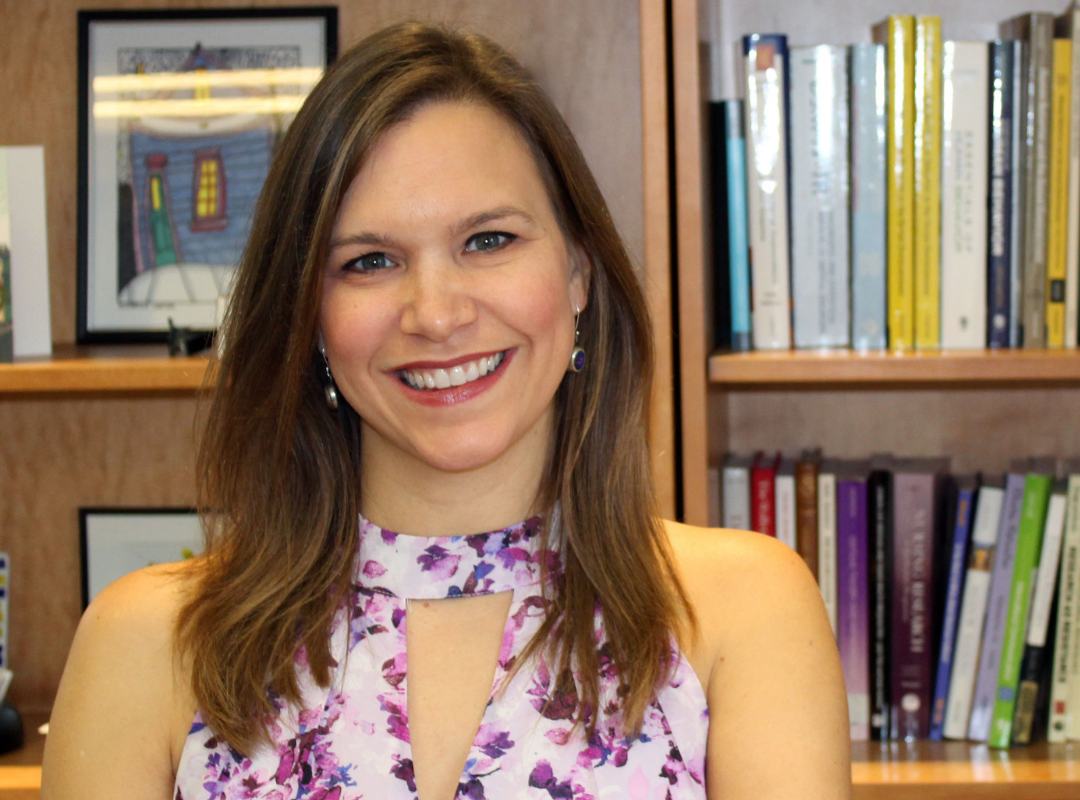Celebrating Native American Heritage Month: Honoring the work of Dr. Catherine O'Connor
As we observe Native American Heritage Month, Tulane School of Social Work is honored to recognize and celebrate the voices that contribute to our understanding of Indigenous experiences and perspectives. One such voice is TSSW Professor Catherine O'Connor, PhD, whose groundbreaking research sheds light on the intersections of colonialism, gender, and social work.
Understanding the Colonial Mindset
In Dismantling the colonial mindset and becoming “Gender AWAke”: From gendered complicity to embodied praxis, Dr. O'Connor explores the colonial mindset that continues to shape research and practices in contemporary society. By critically examining the historical oppression faced by Indigenous peoples, particularly Indigenous women and gender-expansive individuals, she highlights how these legacies persist in modern structures. Dr. O'Connor challenges us to reflect on how dominant narratives, often rooted in Western psychology, perpetuate gendered settler colonialism.
One of the key contributions of Dr. O'Connor's work is her introduction of the concept of "Agility with Awareness" (AWA). This framework encourages individuals and institutions to cultivate a critical consciousness—an understanding of the systemic inequalities at play—while simultaneously remaining adaptable in their responses. By living AWAke, we can begin to dismantle the gendered complicity that has historically marginalized Indigenous voices.
Analyzing Violence Against Indigenous Women
Dr. O'Connor dives deep into the structural violence inflicted upon Indigenous women, drawing connections to the broader implications of settler colonialism. Through her analysis of heteropatriarchal systems, she illustrates how these oppressive structures not only impact individual lives but also uphold societal norms that marginalize Indigenous knowledge and experiences. By exposing these dynamics, she provides a vital framework for understanding the complexities of gender and colonialism.
Dr. O'Connor also serves as Primary Investigator for a National Institutes of Health grant for the development of a program called Chukka Auchaffi’ Natana: The Weaving Healthy Families Program to Promote Wellness and Resilience and Prevent Alcohol and Other Drug Abuse and Violence. The 10-week program pays participants to attend meetings focused on improving communication, healthy relationships, and personal skills, as well as reducing and preventing problems related to substance use, conflict, and violence.
Embracing Subjugated Knowledges
Dr. O'Connor also emphasizes the importance of subjugated knowledges—those perspectives and experiences that have been historically silenced. By bringing these voices to the forefront, she offers a pathway toward collective liberation and healing. This approach not only honors Indigenous wisdom but also invites us to reexamine our own beliefs and practices.
“Prayer is Universal”: How Integrative Faith Practices Enable Indigenous Peoples’ Persistence and Resistance to Transcend Historical Oppression reveals that settler colonial power dynamics often diminish Indigenous spiritual practices compared to Western religions. Dr. O'Connor's scholarship challenges social workers to recognize and honor Indigenous spiritual practices and worldviews.
A Call for Personal and Collective Liberation
Dr. O'Connor encourages us to engage actively in our communities, to confront our biases, and to work toward a more equitable society. By embracing this mindset, we can begin to dismantle the oppressive structures that have long governed our interactions and relationships.
Dr. O'Connor's work not only enriches our understanding of the colonial mindset and its impacts but also empowers us to envision a future rooted in equity and justice. By acknowledging and engaging with these critical insights, we can move toward a society that truly respects and uplifts Indigenous voices and experiences.

